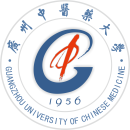Taking advantage of the favorable geographical location and the vibrant campus culture, the university is active in serving the national The Belt and Road initiative. It accepted students abroad since 1974, and has a total enrollment of over 2,300 current overseas students covering bachelor's, master's and doctoral degree education. The scale of international education of GZUCM ranks in the forefront of similar universities in China. Over the past 60 years, the university has cultivated more than 20,000 overseas experts in TCM from over 110 countries and regions. A large number of head of overseas Chinese Medicine organizations are our university's alumni, such as Mr. Xue Changli (director of the Australian Administration of TCM) and Mr. Huang Xiansheng (president of the American Society of TCM)
The university has being collaborating on anti-malarial research with southeast Asian and African countries. The fourth generation artemisinin series anti-malarial drugs, developed with proprietary intellectual property rights by Professor Li Guoqiao's group, are listed as the key project of Construction of Strong Province of TCM of Guangdong Province, as well as the key foreign cooperative project of the State Administration of Traditional Chinese Medicine. These drugs are even presented to many African countries as a national gift. So far, artemisinin has obtained the international patent protection of 38 countries and the trademark registration of 29 countries, and has come to the market of 22 malaria-endemic countries. The rapid elimination malaria program with artemisinin compound in Comoros, cooperatively implemented by the scientific research team led by Professor Song Jianping, had effectively curbed the local malaria epidemic, and achieved zero death of malaria for the first time in the country's history, which was fully affirmed by WHO.
The University’s First Affiliated Hospital has signed a cooperative agreement with Icahn School of Medicine at Mount Sinai, United States, on the research of prevention and treatment of immune diseases with Chinese Medicine. The University’s Second Affiliated Hospital has signed agreements with Karolinska Institute of Sweden to collaboratively implement research of prevention and treatment of infectious diseases with Chinese Medicine, as well as agreements with Massachusetts General Hospital to jointly construct a China Hospital of Massachusetts General Hospital in Hengqin New Area, Zhuhai. At the end of 2015, GZUCM-RMIT Institute of Life Science and Bioengineering (Shenzhen) was started by Guangzhou University of Chinese Medicine and Royal Melbourne Institute of Technology with the support of Shenzhen Municipal Government. Moreover, the university is active in undertaking the China ASEAN Cooperation Fund Project of the Ministry of Foreign Affairs and cooperating with ASEAN countries on traditional medical higher education.
The university regards its 60th anniversary as a new starting point, and will seize the opportunity of national Double First-Class university project as well as provincial Construction of High Level Universities, to carry forward construction of high-level university of Chinese Medicine, to develop Chinese Medicine academy, to promote Chinese Medicine culture, and to construct Healh China.




